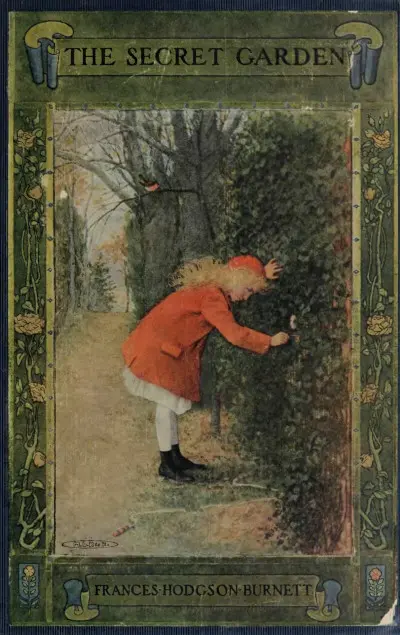Read in August 2025. Had seen a film version before but never read. I felt there was some loose Christian symbolism and imagery going on so I ended up taking some notes.
The main character is called Mary, and the servant who befriends her is called Martha. This suggests that another character is Lazarus, and Colin fits the bill, in that he undergoes a transformation akin to being raised from the dead. His name is not actually Lazarus, but if we take Colin to be a form of the name Nicholas, then Nicholas and Lazarus sort of share a syllable. I’d say it’s a stretch except that the Mary-Martha symbolism seems so clear.
The robin redbreast is a Christological animal, but apart from the connection with blood I will have to check Le Bestiaire du Christ for more details on this.
There is a shift from India to Yorkshire, from Empire to Merry England, from Eastern Despotism to the freedom of Christendom, the “liberty of the glory of the children of God”. We also see winter changing into spring and are reminded that India does not have a springtime. Dickon seems to epitomize the country life. He is something of a Robin Hood or Tom Bombadil, a spirit of the land.
The Secret Garden is also reminds me of As You Like It, with its transition from the court to the Forest of Arden, and its theme of restoration and ἀποκατάστασις.
The phrase “full of lace” is repeated a couple of times, since it is Mary’s principal memory of her mother. The rhyme with “full of grace” stood out to me. I might not have paid much attention to this had not the plot revolved around a secret, walled rose garden.
The initial topsy-turvy state of the household was interesting. The lord is absent and the house is under the tyrannical rule of a child, a boy with womanly hysterics.
My enjoyment of the story was slightly spoiled by the “Magic” that the children do. There is truly a magical transformation that happens, but it’s one that wells up out of the earth and descends from on high like the dewfall, and it’s not a kind of yoga, and it’s not a kind of sorcery.
I’ll end with that interesting quote about living forever:
One of the strange things about living in the world is that it is only now and then one is quite sure one is going to live forever and ever and ever. One knows it sometimes when one gets up at the tender solemn dawn-time and goes out and stands out and throws one’s head far back and looks up and up and watches the pale sky slowly changing and flushing and marvelous unknown things happening until the East almost makes one cry out and one’s heart stands still at the strange unchanging majesty of the rising of the sun–which has been happening every morning for thousands and thousands and thousands of years. One knows it then for a moment or so. And one knows it sometimes when one stands by oneself in a wood at sunset and the mysterious deep gold stillness slanting through and under the branches seems to be saying slowly again and again something one cannot quite hear, however much one tries. Then sometimes the immense quiet of the dark blue at night with the millions of stars waiting and watching makes one sure; and sometimes a sound of far-off music makes it true; and sometimes a look in someone’s eyes.
